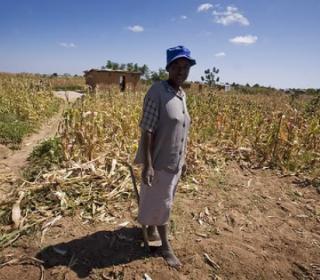Parliamentary Media Briefing by the Minister for Agriculture and Land Affairs, Ms Thoko Didiza
Mentions new food security programme, transfer of state land, land tenure, land reform grant, new approach, commonage, agricultural redistribution grants, integrated rural development planning. Will facilitate transfer of tribal land to tribes and communities. Extended deadline for labour tenant claims to March 2001. Previous overemphasis on market forces failed to produce desired effect and impact. Lifted last August’s moratorium on new land reform projects. Piloting a supply led system.




